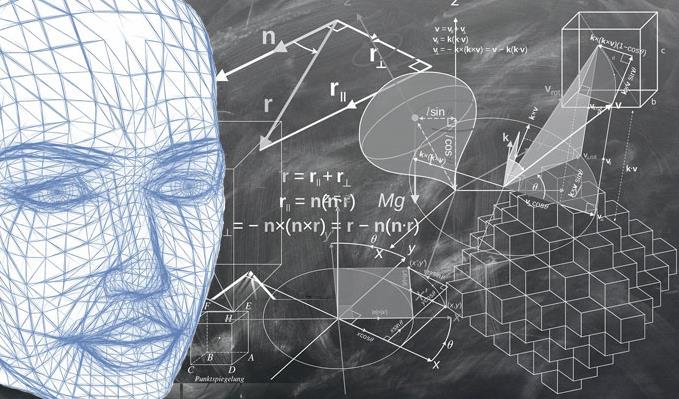
Pharmaceutical companies have been racing to develop a coronovirus vaccine. However, even with modern technology, this needs significant trial and error, and always requires intensive testing on animal and human subjects before it can be mass-produced. Right now, there's still no coronavirus vaccination, and none is expected to be developed any time soon.
The coronavirus has rapidly become an epidemic, prompting major health organizations to predict that the disease is likely to spread around the world.
Pharmaceutical companies, as a result, have been racing to develop a vaccine. However, even with modern technology, this needs significant trial and error, and always requires intensive testing on animal and human subjects before it can be mass-produced. Right now, there's still no coronavirus vaccination, and none is expected to be developed any time soon.
Medical researchers hope that AI algorithms, which are already being used in the development of vaccines, may provide an answer.
The Challenges of Creating a Coronavirus Vaccine
No coronavirus vaccine is ready for mass production yet, although work has been underway on developing one since shortly after the new virus was identified. Diagnostic tests have also been available for several weeks.
This is primarily due to the way vaccines are developed and manufactured. They work by delivering a fragment of a virus's RNA to the human immune system. Ideally, this will promote an immune system response without creating symptoms.
Below is an example of how mRNA therapeutics has demonstrated great potential in recent clinical trials and preclinical studies, Encoding antigens, growth factors, transcription factors or nucleases, in-vitro-transcribed (IVT) mRNA can be applied as vaccine against cancer and infectious diseases. (Messenger RNA translation enhancement by immune evasion proteins: a comparative study between EKB (vaccinia virus) and NS1 (influenza A virus)
One small pharmaceutical company, Inovia, claims to have discovered a vaccine for the coronavirus within three hours of beginning work. However, it will likely take months to test. If it isn't effective at prompting an immune response, or leads to coronavirus-like symptoms, the researchers will be back at square one.
This means getting the vaccine formulation right before testing begins, and ensuring procedures are as streamlined as possible will be essential for pharmaceutical companies wanting to bring a coronavirus vaccine to market.
How AI Is Being Used in Vaccine Development
Researchers have begun applying AI to accelerate the development of a coronavirus vaccine. Two different groups have used AI to find compounds that could combat the disease.
One project used AI to identify already-approved drugs that could be effective in limiting the virus's infection abilities. The other used AI to identify six possible molecules that could be used similarly.
Both projects are at the cutting-edge of AI and medical research, but neither was the first time AI has been used to develop a vaccine. Last year, a research team from Australia made headlines after publishing a paper on a flu vaccine developed entirely by AI. Like the AI in the two projects looking for a compound to beat the coronavirus, this one was used to identify potential adjuvants — compounds that boost the human immune system — that could bolster the efficacy of flu vaccines.
These AI-based efforts could help conserve resources and keep scientists on track, ultimately bringing them to a usable answer sooner without the need for a lengthy testing period. This could happen if research teams can identify an existing, already-tested drug that's effective in preventing the spread of coronavirus.
However, researchers face significant challenges in the use of AI in the vaccine development process.
For example, some AI techniques have caused concerns about secure and ethical data usage. AI projects often discover potentially useful compounds by looking for connections in significant amounts of existing information. That data has to come from somewhere — collected by projects like Google's Project Nightingale — and can often be tied back to patients if not properly scrubbed of identifying information. This could, in turn, create a significant security threat without the right protections in place.
Researchers and pharmaceutical companies working with AI also lack sufficient funding for vaccine research and development. Right now, investors are skittish about putting significant resources toward the creation of a coronavirus vaccine. The number of possibilities — like a lack of demand or the potential that the disease could stop spreading — could render the vaccine unprofitable by the time it is ready for mass production.
How AI Could Accelerate the Development of a Vaccine
The rapid spread of the coronavirus around the world has pushed pharmaceutical companies to quickly start work on a vaccine. However, the nature of development — especially the large amount of time needed for testing — has prevented one from coming to the market so far.
As a result, medical researchers have begun leveraging AI algorithms to cut down on the development time and potentially prepare a vaccine much sooner. However, AI comes with its own challenges — like concerns about data security — that could make its use less practical.
Author Bio:
Jenna Tsui is a technology journalist with writing experience in future & disruptive technologies, AI, medtech, and scientific development. To see more of Jenna's work, visit The Byte Beat , follow her on Twitter or check her out on LinkedIn.












Leave a Comment
comments powered by Disqus